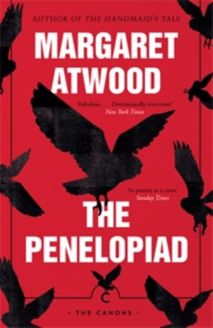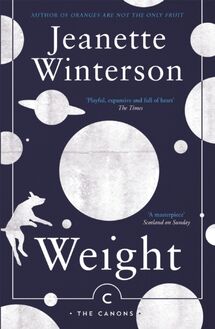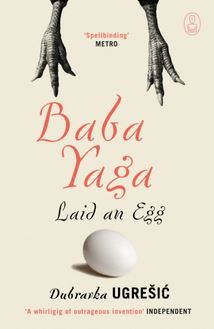Binu and the Great Wall of China , livre ebook
105
pages
English
Ebooks
2009
Vous pourrez modifier la taille du texte de cet ouvrage
Obtenez un accès à la bibliothèque pour le consulter en ligne En savoir plus
Découvre YouScribe en t'inscrivant gratuitement
Découvre YouScribe en t'inscrivant gratuitement
105
pages
English
Ebooks
2009
Vous pourrez modifier la taille du texte de cet ouvrage
Obtenez un accès à la bibliothèque pour le consulter en ligne En savoir plus
Publié par
Date de parution
06 août 2009
Nombre de lectures
0
EAN13
9781847676634
Langue
English
Publié par
Date de parution
06 août 2009
Nombre de lectures
0
EAN13
9781847676634
Langue
English
Myths are universal and timeless stories that reflect and shape our lives – they explore our desires, our fears, our longings, and provide narratives that remind us what it means to be human. The Myths series brings together some of the world’s finest writers, each of whom has retold a myth in a contemporary and memorable way. Authors in the series include: Chinua Achebe, Alai, Karen Armstrong, Margaret Atwood, AS Byatt, Michel Faber, David Grossman, Milton Hatoum, Natsuo Kirino, Alexander McCall Smith, Tomás Eloy Martínez, Klas Östergren, Victor Pelevin, Ali Smith, Donna Tartt, Su Tong, Dubravka Ugresic, Salley Vickers and Jeanette Winterson.
BINU AND THE GREAT WALL OF CHINA
Su Tong
Translated from the Chinese by Howard Goldblatt
CONTENTS
Crying
Frog
Peach Village
Bluegrass Ravine
The People Market
Hundred Springs Terrace
Deer-boys
The Drawbridge
The Deer King’s Grave
Gravedigging
The River Bend
Fragrant Forest Station
Seven-Li Cave
Five-Grain City
Tear Brew
Assassin
City Gate
King
Binu
The North
Thirteen-Li Shop
Great Swallow Mountain
The Great Wall
Preface
The tale of Binu wailing at the Great Wall has been passed down through generations for two millennia in China; a story that has been told again and again by ordinary people. Mine is only the latest retelling, but blessed with the added good fortune of finding its way beyond China’s borders.
In one sense, myths are soaring realities; when troubling realities soar, they may remain troubling, but they afford the people experiencing those realities the opportunity to escape for a short time: a welcome escape, and a necessary one.
The most beautiful, uninhibited imagination invariably comes from ordinary people. To a large extent, I wrote this book to re-imagine the emotional lives of these people, the distillation of which, in my view, forms a sort of popular philosophy. In effect the writing process became an inquiry into this particular imagined realm.
The wild imaginings of all humanity are structured by people’s emotional landscapes; fundamental principles of freedom, equality, and justice co-exist both in our real and imagined lives. Myths instil in us a special way of thinking; what exists in the quotidian world but can also make the leap to paradigms that surpass life bestows on us an extraordinary reason to live. Where myths are created, the world offers a succinct but warm contour: life and death, entrances and exits are given natural, if emblematic, reasonings; cruel, harsh, real-life problems can be resolved.
In the mythical tale of Binu (or as she is known more formally, Meng Jiangnü), a woman’s tears bring the Great Wall crashing down; it is an optimistic tale, not a sorrowful one. Rather than characterize it as a woman’s tears bringing an end to the drawn-out search for her husband, we might say that those tears enable her to resolve one of life’s great predicaments.
How one relates a tale that everyone already knows is a problem that all writers face. There is a Binu in the heart of everyone; my understanding of her comprises an exploration of gender, the recognition of a pure heart, the recollection of a long absent emotion; my understanding of her fate is a realisation of suffering and existence. Binu’s story is a legend not so much about a woman at the bottom of society, but rather a legend about status and social class.
I have seen the Great Wall, and I have visited the Meng Jiangnü Temple. But I have never seen Binu. Who has? She is set adrift in narrative history and takes on many forms. I have attempted to give her a rope, one that can stretch across two thousand years, allowing her to pull me along with her; like Binu, I want to go to the Great Wall.
Crying
The people who live at the foot of North Mountain cannot cry, even today. Grey-haired adults seize the opportunity to instruct future generations; they point to North Mountain and recall the tragedy that occurred so many years ago.
‘Child,’ they say, ‘other people’s ancestors lie beneath the ground, but the spirits of our ancestors roam the slopes of North Mountain. Why do you think those white butterflies flit about the mountain? And what about the scarab beetles that scurry back and forth across mountain paths? They are the spirits of our ancestors who were wronged; that is why. They are trying to find their North Mountain gravesites. Other people’s ancestors died of starvation and illness, or of old age, or in war. But our ancestors died of injustice. Guess, child, I want you to guess. Why did they die? Ah, you can guess all you want, but you will never get the right answer. Their eyes were the cause of their deaths; they drowned in their own tears!’
The wild vegetation on the mountain was ideal for eating and its spring water perfect for drinking – except for the water in the pool that formed when water ran down the mountain slope and into Lord Xintao’s empty grave – according to the Kindling Village sorceresses, who were the source of all local knowledge. No one now could recall what Lord Xintao had looked like when he lived as a hermit on North Mountain, but no one dared drink that water, for that would be tantamount to drinking from a pool of tears, the accumulated tears of three hundred ancient spirits, covered by a layer of sweet rainwater.
Lord Xintao’s funeral had alarmed the king; he forbade people to cry and positioned armies of court officials and prefecture soldiers half-way up the mountain to examine mourners as they came down the mountain. Some passed through the blockade without incident, others were stopped, their cheeks and eyes subjected to intense scrutiny; three hundred villagers whose tears had yet to dry were detained half-way down the mountain. The tears they had shed at Lord Xintao’s funeral were about to cost them their lives.
High officials and members of the royalty knew of the new law, but not the villagers who lived at the foot of North Mountain. Blue Cloud Prefecture and the cities of the north were far off on the other side of the mountain; news of the outside world seldom reached them. All year round, they talked only of tilling fields and planting crops. Long after it had happened, the people learned that Lord Xintao had been exiled to North Mountain by the King, his back tattooed in gold with the King’s command, condemning him to death in a frozen climate. But Lord Xintao lived on until Qingming, the day set aside for sweeping graves, when he looped a strip of white silk over a beam in his hut and hanged himself. The people living at the foot of the mountain, simple folk who held stubbornly to their beliefs, knew only that Lord Xintao was the King’s uncle; his royal blood alone made him deserving of their reverence, and added to that was respect for anyone who lived the life of a recluse. On the day of his funeral they ran down the mountain, overcome with sorrow for the departed and unaware that their tears were to be their undoing.
To this day, the villagers at the foot of North Mountain dare not shed a tear on pain of death.
The descendants of the weeping spirits were scattered throughout the Peach Village, Kindling Village and Millstone Village area, where even young children understood their ancestry. In Peach Village and Millstone Village, the right to cry was, in the main, determined by age. Once a child learned to walk, he was no longer permitted to cry. The residents of Kindling Village, on the other side of the river, imposed an outright prohibition on crying, with no exceptions, not even for newborn babies; the honour or disgrace of these ‘opposite-bank’ residents was directly linked to their sons’ and daughters’ tear ducts. Village women, in an impassioned attempt to hold their heads up in the company of others, sought the ministrations of sorcerers, and most of the clever women had command of the proper magic to prevent crying: they fed their infants a concoction of mother’s milk and juice of wolfberry and mulberry; when the recipients of this red liquid were fully fed, they fell into a long, peaceful sleep. There were occasional recalcitrant children whom no one seemed able to stop from crying, making the Kindling Village mothers worry endlessly. They had a secret means of relieving their vexations, so mysterious it invited all sorts of fantastic speculation. Residents of neighbouring villages would gaze across the river and wonder at the peace and quiet of Kindling Village, that and the visible decrease in its population. The primary cause of both, they concluded, was the absence of crying children. Those children who cried – how could they all simply disappear?
The impoverished state of North Mountain persisted, like the rapids of the nearby Millstone River. No one knew where the water flowed to, but every drop had its source, and so the people searched beneath the sky and above the ground, seeking the sources of their own sons and daughters. The heavens heralded the boys’ arrival; soon after their sons were born, proud parents looked heavenward, where they saw the sun, the moon, the stars, soaring birds and floating clouds; whatever they saw was what their sons would be, which is why some of the boys at the foot of North Mountain were the sun and stars, some were eagles, others were rain, and the very least of them was a single cloud. But when girls came into this world, gloom settled over the huts and shacks, and to escape a blood curse the fathers were required to stride thirty-three paces from their front door. They headed east at a brisk pace, heads down, and whatever the ground revealed at the thirty-third pace was what their daughters would become. Naturally, they avoided pig sties and chicken coops, and long-legged fathers could reach the wildwoods at the far edge of the village; even so, the sources of daughters were humble and base. Most would belong to wild greens, melons, fruits and the like: a mushroom, a lichen, a dry weed, a wild chrysanthe









